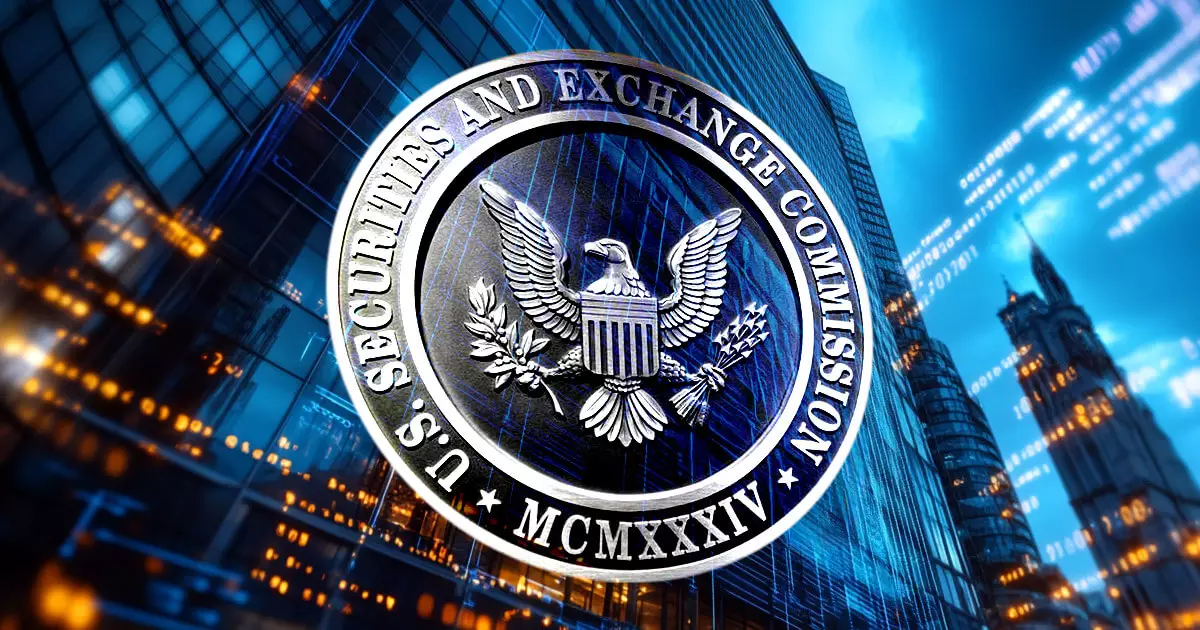In a significant shift in regulatory strategy, the United States Securities and Exchange Commission (SEC) has introduced its Cyber and Emerging Technologies Unit (CETU), replacing the previous Crypto Assets and Cyber Unit. This transition, which was announced on February 20, signals an evolving recognition of the complexities inherent in digital asset markets and the increasing sophistication of cyber-enabled financial crimes. The formation of this new unit reflects a broader aim of the SEC to not only enforce rules related to cybersecurity and emerging technologies but also to embrace innovation within these rapidly developing sectors.
Laura D’Allaird, a seasoned professional within the SEC who previously served as deputy director of the Division of Enforcement, has been appointed as the inaugural chief of the CETU. Under her leadership, a dedicated team of 30 attorneys and fraud specialists will operate out of nine regional offices of the SEC, thus consolidating a wealth of expertise in relevant areas such as fintech, cybersecurity, and digital asset markets. This strategic consolidation is designed to foster a more cohesive approach to regulatory oversight, bringing together diverse experience to effectively tackle potential misconduct.
The CETU will concentrate its efforts on six primary areas of concern: schemes driven by artificial intelligence, manipulation tactics on the dark web and social media, hacking incidents involving sensitive material, unauthorized access to brokerage accounts, fraud related to crypto assets, and cybersecurity rule compliance. This structured approach indicates a clear intention to address current threats while also allowing for the exploration of future challenges that may arise as technology continues to evolve.
Acting SEC Chair Mark Uyeda has voiced a commitment to leveraging the unique capabilities of the CETU to not only protect investors but also stimulate capital formation and enhance market efficiency. This dual objective underscores the SEC’s intention to maintain an open dialogue with the industry while safeguarding market integrity. Furthermore, the CETU will work in conjunction with Commissioner Hester Peirce’s Crypto Task Force, reflecting a broader initiative to deploy enforcement resources strategically throughout the digital asset ecosystem.
One of the more nuanced aspects of the CETU’s formation is its emphasis on not fostering an overly aggressive regulatory environment, a tendency that had been observed under former Chair Gary Gensler’s leadership. Gensler’s often contentious tactics concerning well-known companies such as Coinbase and Ripple had resulted in a climate of regulatory uncertainty, potentially stifling innovation within the industry. It appears that the new SEC leadership aims to learn from these experiences, seeking a more balanced approach that enables growth while providing necessary oversight.
With the CETU’s infrastructure in place, significant opportunities arise for U.S. blockchain innovation to thrive. The SEC is poised to support the emergence of private stablecoins and other innovative financial technologies while countering the urgency posed by foreign Central Bank Digital Currency (CBDC) initiatives. These dual priorities align with the broader economic and technological goals articulated during the Trump administration, particularly the belief that America must lead in the expansive realm of blockchain technology.
Interestingly, the CETU seems to position itself as not primarily focused on regulating whether digital assets qualify as unregistered securities, a pivotal distinction from the SEC’s past regulatory posture under Gensler. Instead, the unit will concentrate on fraud schemes where blockchain technology and digital assets function as transacting mediums. This approach may provide necessary breathing room for legitimate projects operating in the digital asset space, encouraging innovation without the looming threat of broad regulatory crackdowns.
The establishment of the Cyber and Emerging Technologies Unit marks an important juncture for the SEC and its approach to digital asset regulation. With a renewed focus on both security and innovation, the CETU is poised to tackle the complex challenges posed by emerging technologies and cyber threats, while simultaneously nurturing the development of legitimate financial innovations. Through collaboration and a careful reevaluation of regulatory tactics, the SEC hopes to enhance investor protection, maintain market integrity, and foster an environment conducive to growth in the ever-evolving landscape of digital finance.

